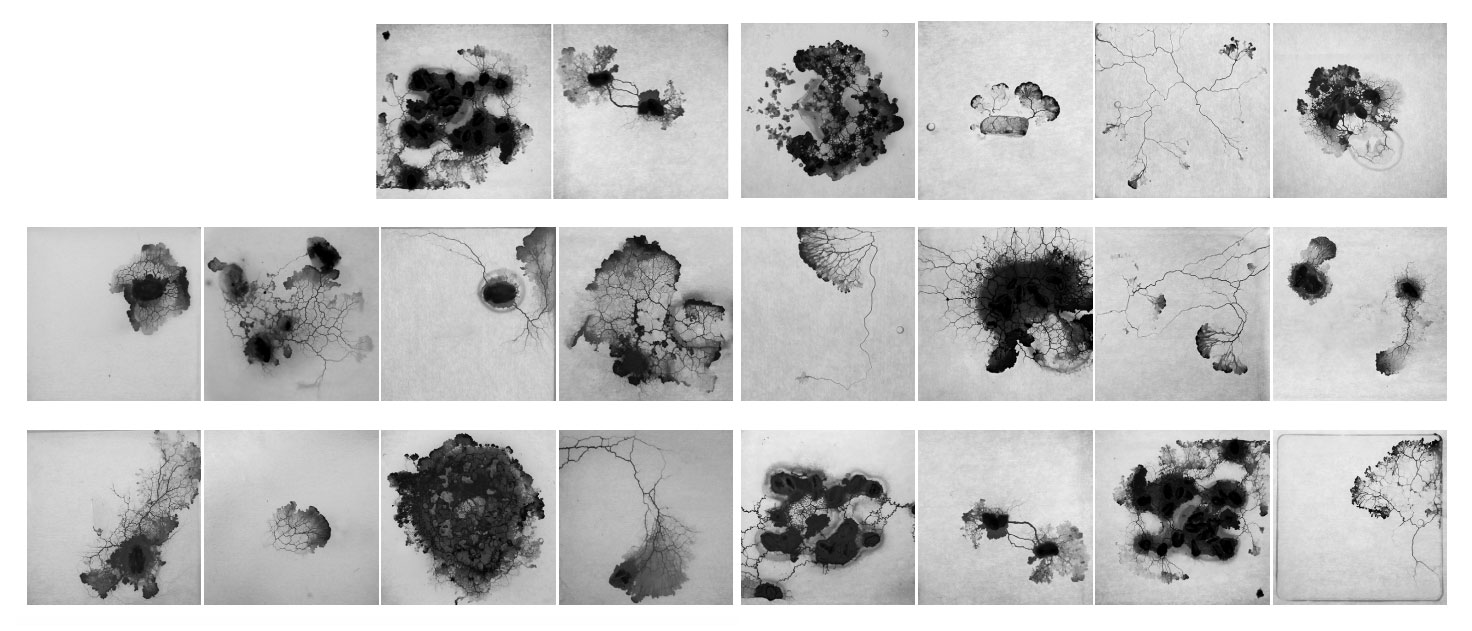A GARDEN OF QUEER DELIGHTS
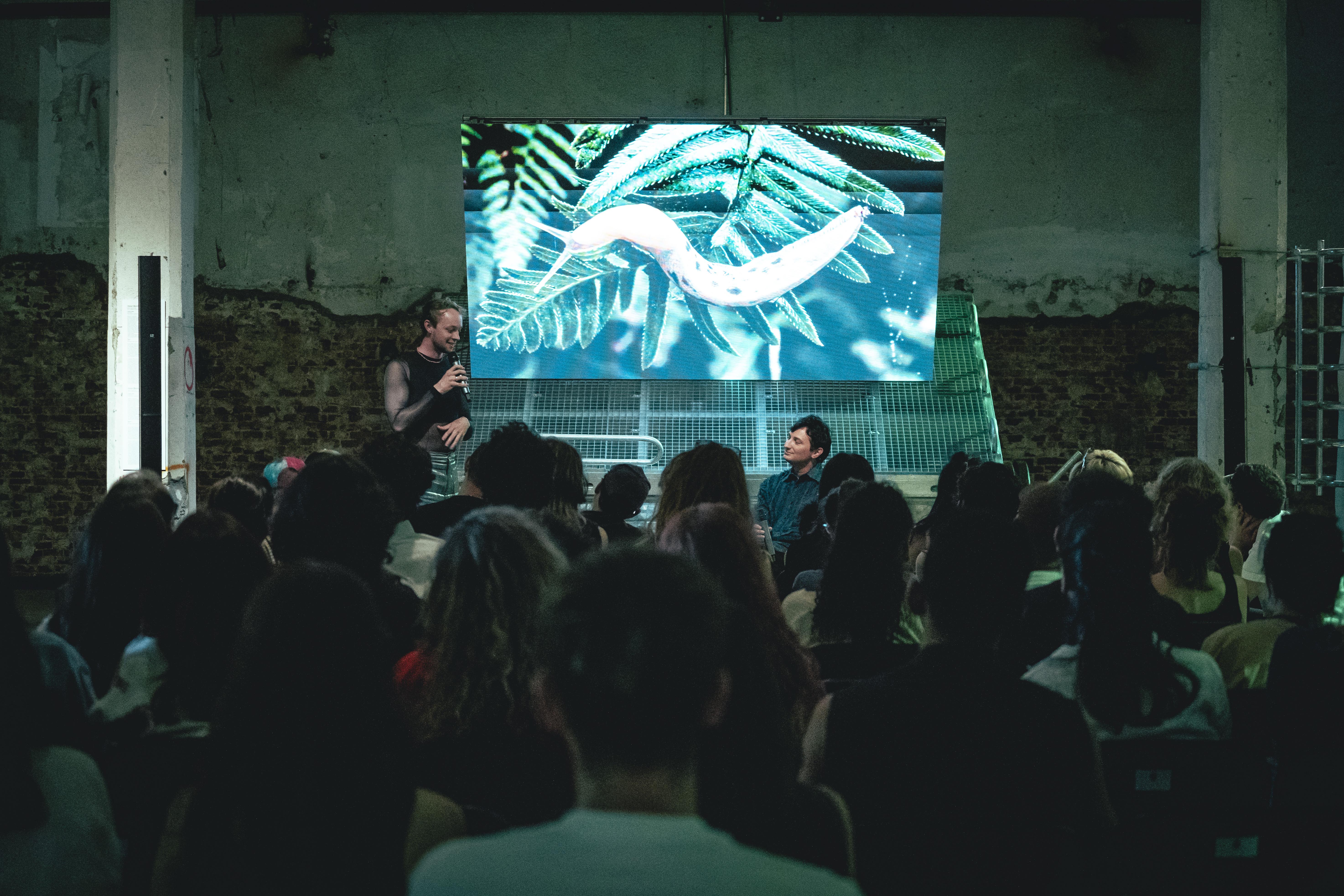
GENERAL INFO
- LOCATION
-
MATADERO MADRID
- DATE
-
June 14th 2024
- ARTIST / FACILITATOR
-
The Institute of Queer Ecology (IQECO) with Lee Pivnik and Nicola Baird
- PARTNERS
-
Intermediae / Matadero Madrid
In their public talk, The Institute of Queer Ecology (IQECO) explored the overlaps between queer cultural production and multispecies biological adaptation to reveal a vibrant and complex world of belonging. Reflecting on the week-long (PIP) 2024 – Postnatural Independent Program, organized by the Institute for Postnatural Studies, IQECO presented highlights from its research on themes of mutability, mutualism, and mimicry, ideas that form the heart of IQECO's current practice.
Queer communities are uniquely positioned to lead climate change adaptation through strategies that are already inherent or familiar to queer experiences. On an individual level, queer lives are mutable: we understand change and transformation in intensely personal ways. Collectively, the queer community is mutualistic: it is symbiotic, connected, relational; it is a space of eccentric economies and mutual support, of found families and utopian dreams, of care and connection, and of the net benefits that species give to one another.
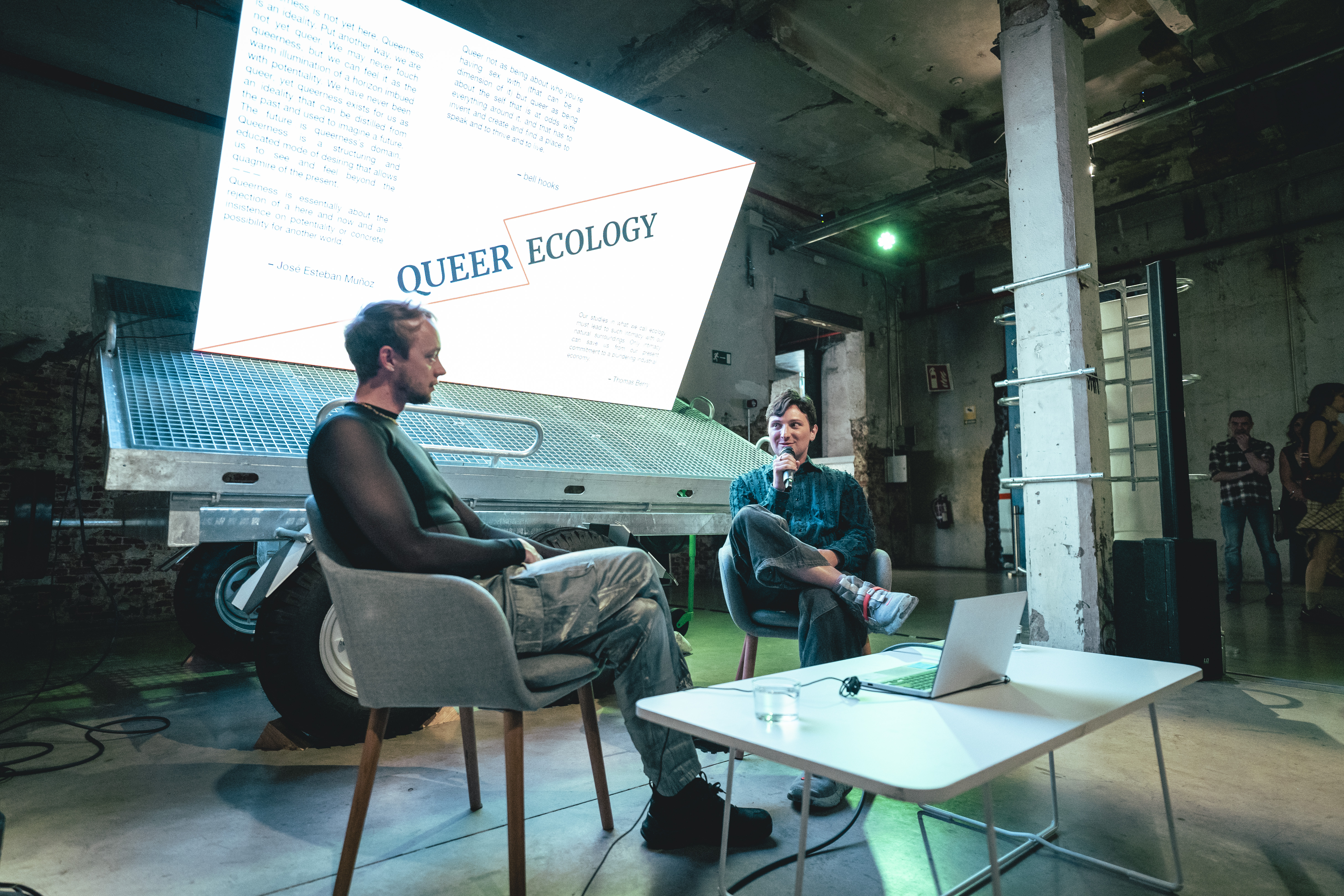
The Institute of Queer Ecology (IQECO) is an ever-evolving collaborative organization that has worked with over 125 different artists to present interdisciplinary programming that ranges from curating programs to directly producing works of art. IQECO's projects are interdisciplinary, yet unified and grounded in the theoretical framework of Queer Ecology, an adaptive practice concerned with interconnectedness, intimacy, and multispecies relationality.

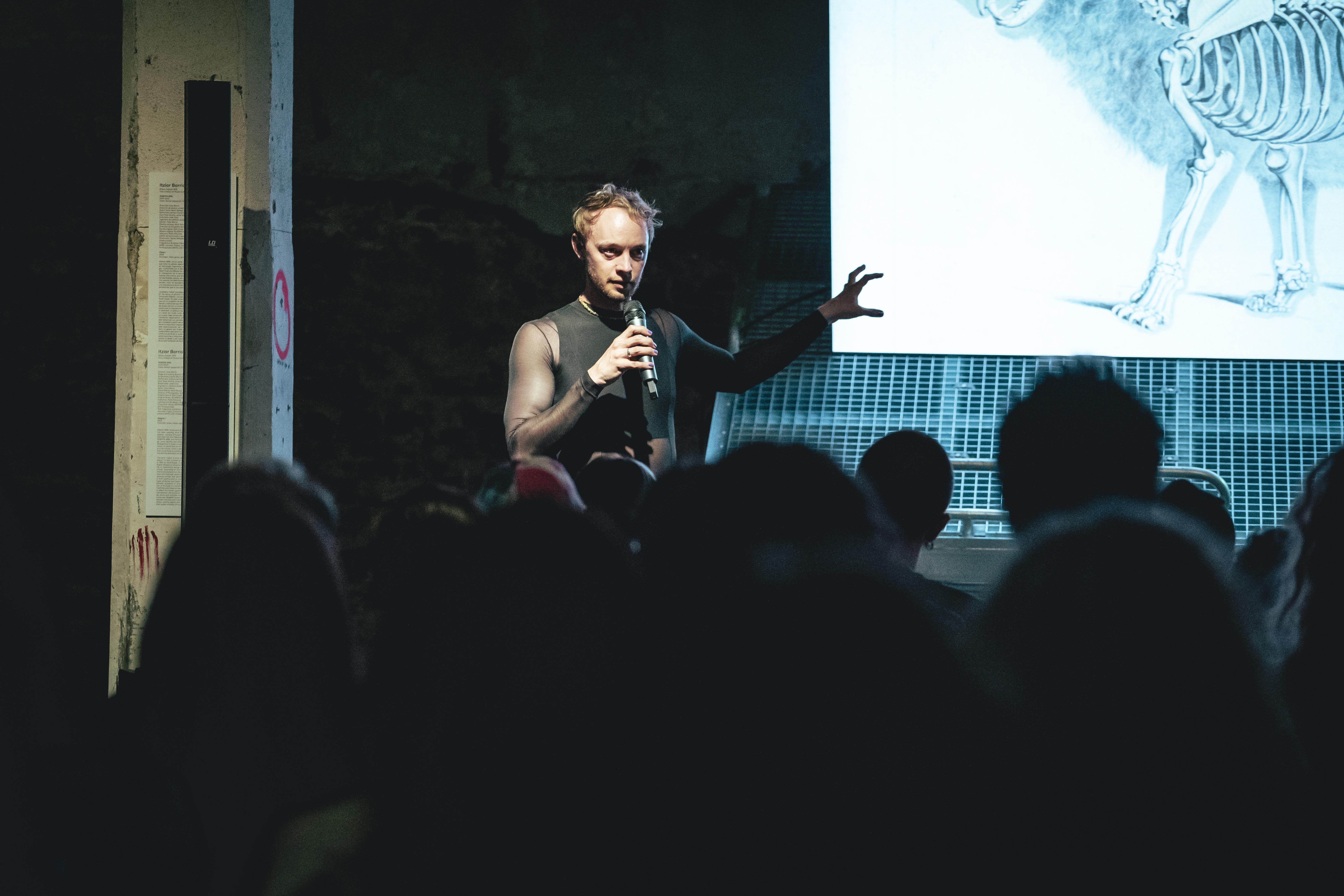
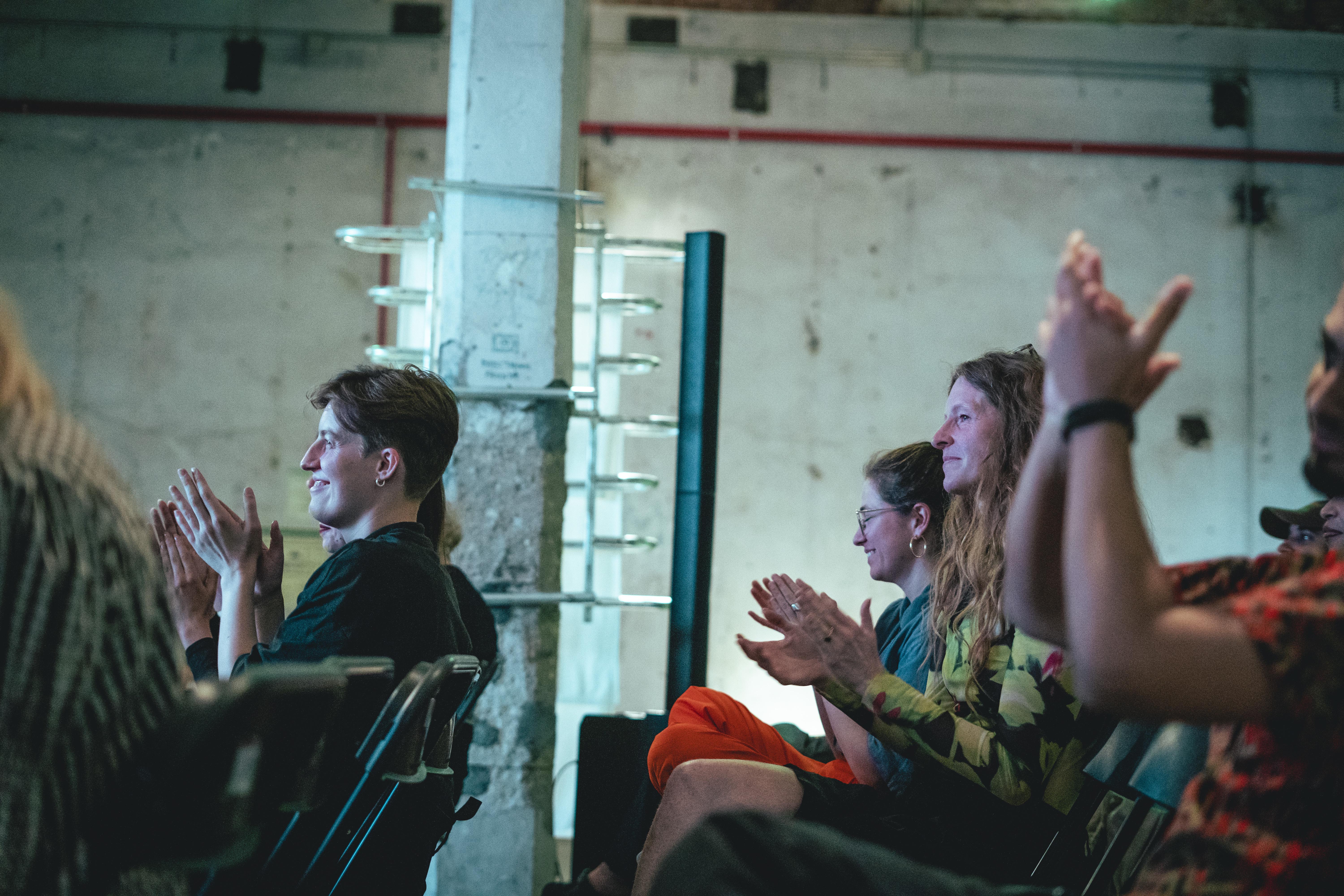
ABOUT
Lee Pivnik is a Miami-based artist whose current work focuses on the history of the built environment in South Florida, looking to local organisms and living systems to identify regenerative solutions for continuing to live in a city marked by precariousness.
Nicolas Baird is an artist and evolutionary biologist from Oracle, Arizona, whose scientific research and artistic practice focus on the reciprocal relationships between bodies and their landscapes, mutual adaptation, and coevolution.
